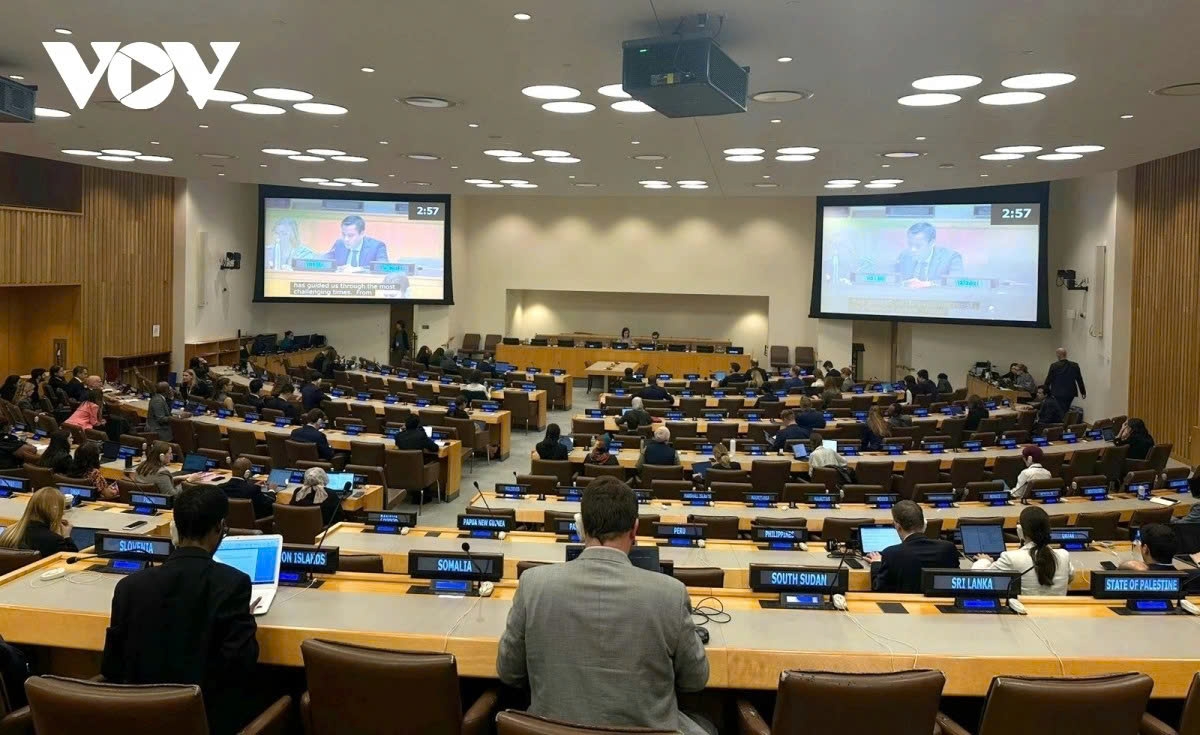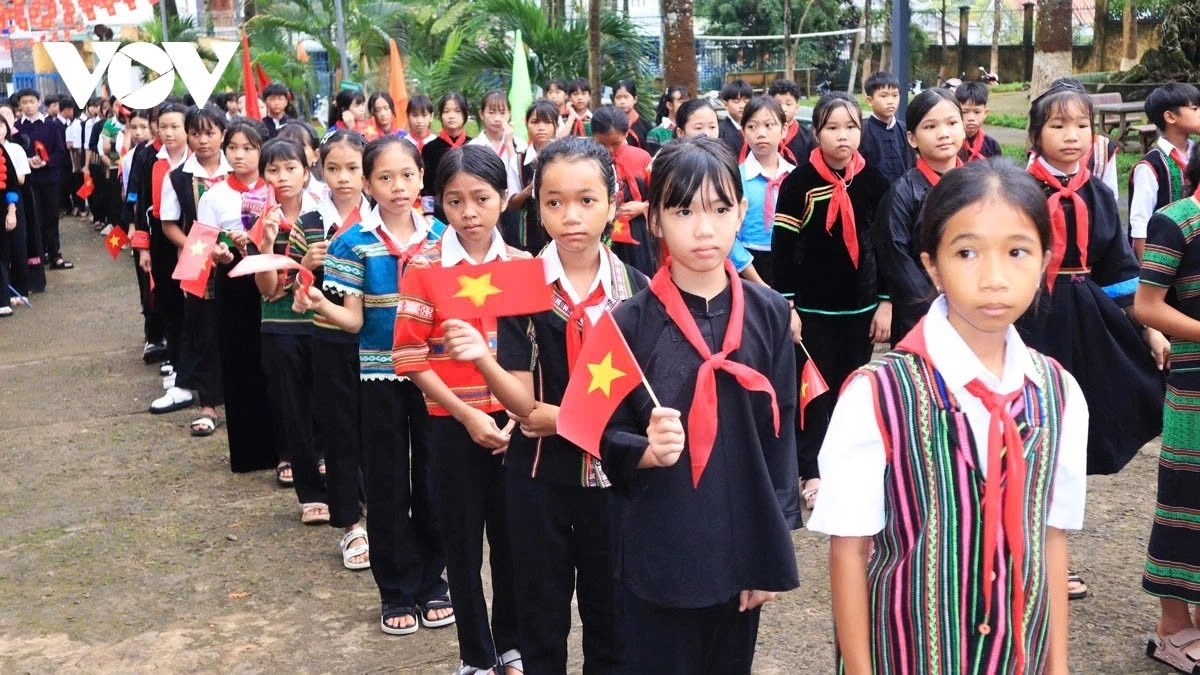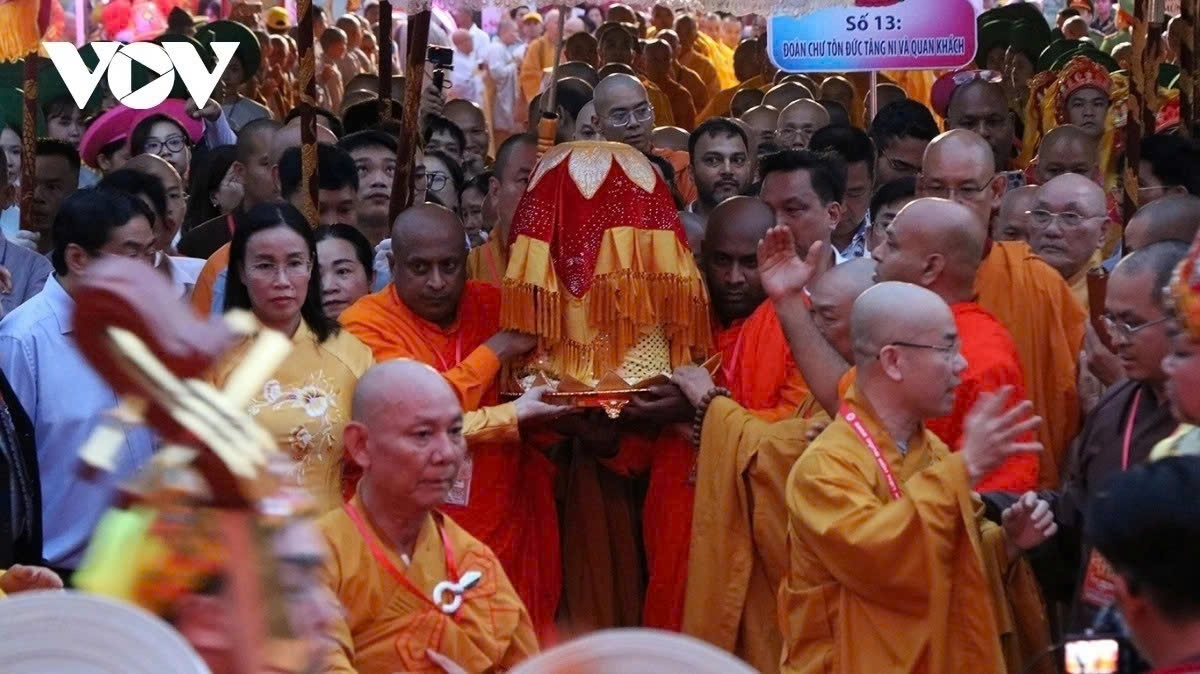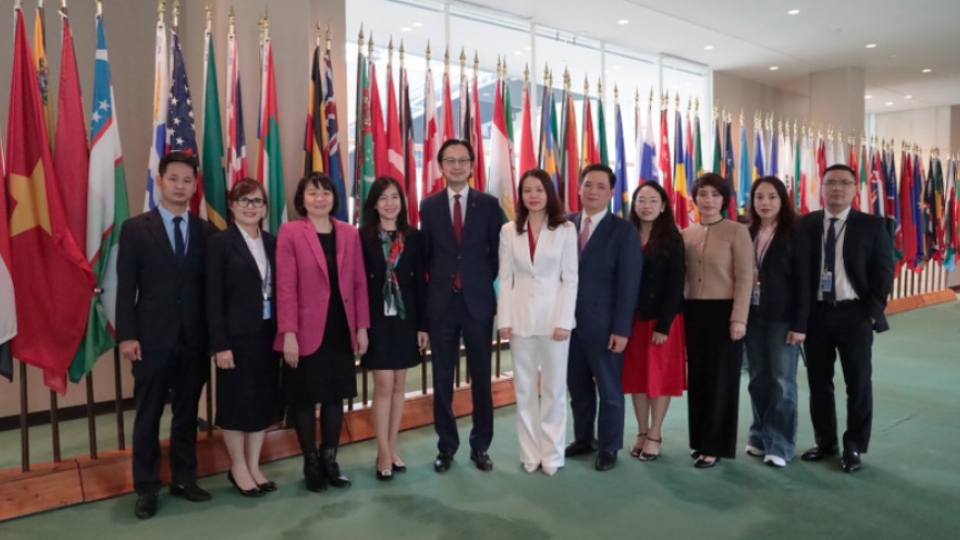Unmasking false accusations against human rights in Vietnam
VOV.VN - At the recent 60th session of the United Nations Human Rights Council (UNHRC) in Geneva, several organisations such as Human Rights Watch (HRW) and Amnesty International (AI) once again repeated their familiar accusations about so-called human rights violations in Vietnam.
These allegations rely on selective and biased sources, yet are conveniently labeled as “international evidence” to give them an illusion of independence and credibility. This is a tactic long employed, increasingly sophisticated, and aimed squarely at damaging Vietnam’s reputation, interfering in its internal affairs, and undermining the country’s stability and development.

In contrast, Vietnam’s presence at the UNHRC during its 2023–2025 term has demonstrated responsibility, transparency, and constructive engagement. Vietnam’s positions on vaccine access, climate change impacts, the rights of the elderly, vulnerable groups, water and sanitation issues received broad support from the international community.
Vietnam consistently emphasises that human rights cannot be separated from the right to development - an undeniable reality often ignored or dismissed by those organisations. It shares its experience and policies aimed at promoting sustainable development while safeguarding human rights, emphasising a comprehensive, people-centred approach.
Vietnam’s contributions were reflected in a range of substantive initiatives that earned recognition from many member states. Rather than issuing political statements, Vietnam acted by promoting resolutions closely tied to the protection of real people, especially vulnerable populations affected by climate change and population aging. These efforts prove clearly that Vietnam pursues genuine human rights advancement, not politically charged narratives.
The country’s progress in human rights stems from decades of strong socio-economic development. From a nation devastated by war, Vietnam has risen to become one of the fastest-growing economies in the region, with GDP per capita increasing sevenfold in 30 years. Indicators such as a literacy rate of more than 97%, health insurance coverage above 95%, a reduction in poverty to just 1.93%, and more than 79% of the population connected to the internet speak for themselves. It’s not by chance that the United Nations, United Nations Development Program, and the World Bank have repeatedly recognised Vietnam as one of the most successful countries in multidimensional poverty reduction and social service expansion.

Alongside domestic progress, Vietnam has seriously fulfilled its international obligations. Reports submitted under the Universal Periodic Review (UPR), the International Convention on the Elimination of All Forms of Racial Discrimination (CERD), the Convention on the Rights of Persons with Disabilities (CRPD), and the International Covenant on Civil and Political Rights (ICCPR) have been regarded by UN treaty bodies as transparent and constructive. These efforts helped Vietnam secure 180 votes, the highest total in the Asia–Pacific region, to continue serving at the UN Human Rights Council for the 2026–2028 term. This outcome stands as the strongest response to the unfounded allegations frequently perpetuated by HRW and AI.
Nevertheless, despite the overwhelming evidence, HRW and AI persist in promoting claims that Vietnam oppresses prisoners of conscience or silences dissent. Notably, their so-called “evidence” originates largely from Boat People SOS (BPSOS) - a politically motivated organisation operating under a humanitarian façade.
HRW, AI, and BPSOS employ a familiar tactic: BPSOS releases selective data, AI incorporates it into a report, and HRW cites AI for confirmation, and the final product is presented to the UNHRC as “independent evidence.” This cycle of “self-quote, self-verify, self-confirm” does not constitute genuine human rights work; rather, it represents a coordinated effort to obscure the origins and reliability of their information.
Even more concerning is that these organisations routinely ignore official information from Vietnam, including legal records, public court documents, and reports submitted to UN mechanisms. They disregard the fact that all cases they label “prisoners of conscience” were tried openly, with legal representation and the right to appeal, and that detainees’ rights were fully guaranteed.
A striking example is the June 11, 2023 terrorist attack in Dak Lak, which left nine people dead. The open trial of 100 defendants, attended by dozens of lawyers and hundreds of domestic and international journalists, was based on 1,200 pages of evidence, 300 witnesses, and 150 video clips. Yet HRW still attempted to characterise it as a “political trial,” willfully distorting a terrorist act into a human rights issue. Such manipulation not only insults the victims but dangerously legitimises violence under the guise of “rights advocacy.”

These tactics of weaponising human rights are intended not merely to tarnish Vietnam’s reputation but to exert political pressure and violate national sovereignty. Vietnam must therefore continue enhancing legal transparency, actively disseminating accurate information across communication platforms, and strengthening cooperation with scholars, journalists, and reputable international organisations to uphold truth in global discourse.
Above all, Vietnam must persist in doing what it has consistently done that ensures the rights of all its citizens through real, tangible policies, not empty rhetoric.
Judging from those assessments, human rights in Vietnam are not a political instrument, nor a tool to satisfy external biases. They are an intrinsic value of the nation – shaped by history, protected by law, and strengthened through sustainable development. Vietnam will remain resolute in defending this value against every form of distortion or external imposition.






